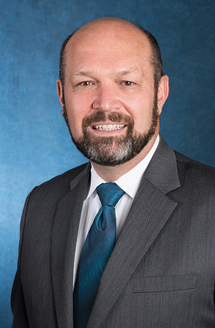
Richard C. Friedberg, MD, PhD
Our CAP Policy Meeting will take place May 2–4 in Washington, DC (details posted at www.cap.org). The agenda reflects today’s reality; the Medicare and private sector coverage landscapes are being reframed in large and small ways. Although we may not have chosen this path, a value-based system can work if we attend closely to its evolution. Tomorrow’s changes are being planned today, however, and we need more pathologists to be more integrated in direct advocacy now.
Let’s start with some background. The federal Centers for Medicare and Medicaid Services relies on 12 Medicare Administrative Contractors, or MACs, to process millions of claims submitted daily to Medicare. These MACs make more than 90 percent of all Medicare coverage decisions and disburse about $365 billion in program payments each year. In a well-defined process, the CMS sets the rules for national coverage determinations, or NCDs, that the MACs apply. Coverage determinations that are not under an NCD are made by the MACs. These local coverage determinations (LCDs) do not necessarily follow the same rules as NCDs, which is the source of our serious concern. This is a black box that leaves physicians and patients in the dark about supporting evidence and rationale.
The underlying problem is that local coverage determinations are effectively unreviewable. Key decisions about what is and is not covered (especially with emerging technologies) are discussed in MAC carrier advisory committee meetings that are not fully transparent. These are high-impact determinations that should be made with the benefit of all relevant input from well-informed physicians, scientists, and professional societies. And once made, these LCDs are extremely difficult to correct, which leads directly to the net problem: Whereas NCDs undergo a more rigorous process than LCDs, if one MAC creates an LCD that is directly adopted by others, the net result is an NCD created through the backdoor.
We would like to see Congress prohibit adoption of “backdoor NCDs,” either expressly or in practice. As part of the CAP Policy Meeting, pathologists will educate legislators and their staffs about the critical need to ensure MAC accountability for medically accurate decisions made by qualified health providers through a transparent process based on sound medical evidence. Increased transparency strengthens accountability. We need a CMS ombudsman to whom stakeholders can appeal LCD reconsideration requests denied by a MAC. We believe that Congress should hold MACs accountable for providing that transparency and insist on full disclosure of how payment decisions are made and the medical and scientific evidence that supports them. These meetings should be open, public, and on the record.
While most conversations with legislators focus on what legislation can best address, CAP Policy Meeting briefings will also prepare pathologists to discuss matters that are primarily regulatory. For example, the Medicare Access and CHIP Reauthorization Act of 2015 (MACRA) repealed the sustainable growth rate and created a merit-based incentive payment system (MIPS) and alternative payment models (APM) to replace former quality metrics. MACRA quality metrics are designed for office-based physicians and are poorly suited to pathologists. The CMS has sought input on modifications, which we have provided, and this is likely to be an ongoing discussion. At the Policy Meeting, a CMS medical officer will update members and offer insight into how MACRA is expected to have an impact on pathologists.
Implementation of the Protecting Access to Medicare Act, scheduled to replace the clinical laboratory fee schedule in 2017, is also in the regulatory environment, but as with MACRA, our members need to keep legislators up to speed on worrisome provisions. For example, PAMA currently calls for a reimbursement structure based on data collection from only certain laboratories, which would inevitably skew reimbursement. That’s not fair.
The Policy Meeting culminates on Hill Day, when pathologists meet with congressional senators, representatives, and staff to share specific information and to establish relationships and a genuine dialogue. When relationships are built, our legislators and their staff will be more comfortable calling upon individual pathologists in their districts to translate technical language in legislation and explain the background and potential impact of health policy proposals.
Ideally, one member of every pathology group should attend the Policy Meeting each year. There is a lot to learn about how legislation is framed and what a skillful advocate needs to know. We will also have the benefit of experts on polling and politics who will bring us up to date on what is working through Congress and being addressed within regulatory agencies.
If I walk through our laboratory right now, I’ll find our staff conferring, collaborating, disagreeing, compromising. They don’t expect to get their way every time or to resolve their differences on the spot, but they will listen to others and, in turn, they will be heard. Similarly, personal encounters, honest conversation, and reliable evidence are the tools of political engagement. Join your county, state, and national medical and pathology societies; they are our partners. The CAP advocacy team can help us establish contact with our elected representatives and get things done. PathNet is our grassroots network. PATHPAC enables our members to support candidates for office. All of us should be active in these organizations, and the more you know, the more effective you can be.
We’re all busy, we all have commitments, and we’d all like to think that someone else is taking care of it. But nobody can do this for us. Our senators and representatives are interested in what we have to say. That’s their job and they take it seriously. Fundamental, far-reaching decisions are being made on matters that a pathologist understands better than anyone else. We owe it to our patients to see that our elected leaders are well informed.
[hr]
Dr. Friedberg welcomes communication from CAP members. Write to him at president@cap.org.
 CAP TODAY Pathology/Laboratory Medicine/Laboratory Management
CAP TODAY Pathology/Laboratory Medicine/Laboratory Management
